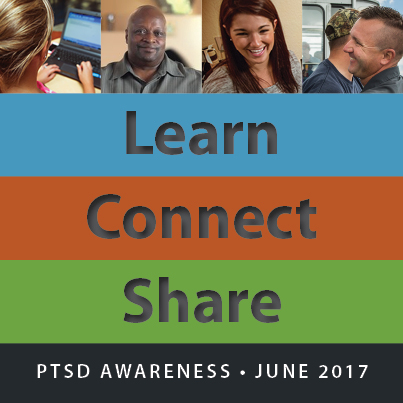
A Brief History of National PTSD Awareness
In order to bring greater awareness to the issue of post-traumatic stress disorder (PTSD), in 2010, the United States Senate designated June 27 as National PTSD Awareness Day following then-Sen. Kent Conrad’s efforts to designate a day of awareness as a tribute to Army Staff Sgt. Joe Biel of the North Dakota National Guard. Biel, who suffered from PTSD, took his life in April 2007, after returning to North Dakota following his second tour of duty in the Iraq War. In addition, June has been designated as PTSD Awareness Month by the National Center for PTSD (NCPTSD).
What is PTSD?
PTSD is a mental health problem, which can occur after exposure to a single traumatic event or multiple traumatic events, such as sexual or physical assault, natural or man-made disaster, or war-related combat stress. After a traumatic event, painful memories are common and the effects of the event fade over time for many people. But for others, the memories, thoughts and feelings don’t go away – even months or years later. Mental health experts are not sure why some people develop PTSD and others do not. If stress reactions do not improve over time and begin to disrupt everyday life, it is important to seek help to determine if PTSD is present
Post-Traumatic Stress Disorder has a profound effect on the lives of those who suffer from it. The statistics alone are staggering, but can only tell a portion of the story. The trauma and anxiety associated with PTSD is a constant burden, inseparable from the sufferer. It was once a condition that was attributed only to returning combat veterans, but more and more the condition is diagnosed in those who have experienced violent crime or lived through catastrophic events. According to PTSD United, 20% of adults in the United States who have experienced a traumatic event suffer from PTSD.
A Brief list of PTSD Symptoms
How you can help
Reach out to someone you know who suffers from PTSD. Let them know you care and are there to help. Learn more about PTSD from the National Institute of Mental Health (NIMH). Use #NationalPTSDAwarenessDay to share on social media. Do you think you might have PTSD or know someone at risk? Take action. Find out what to do if you think you might have PTSD and learn where to get help.